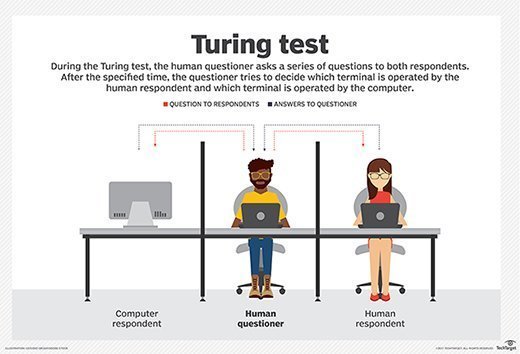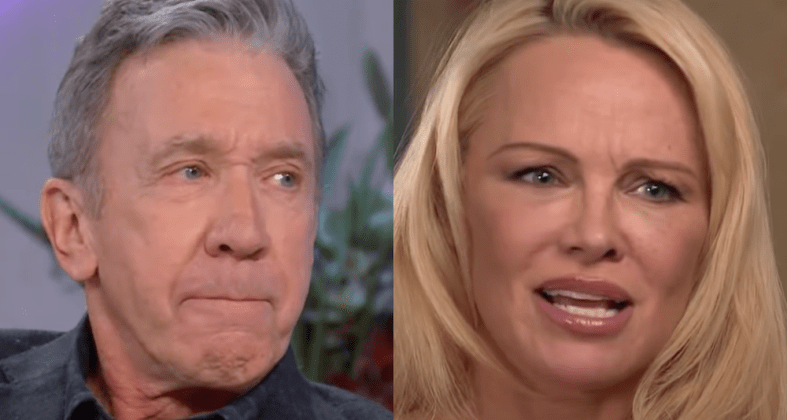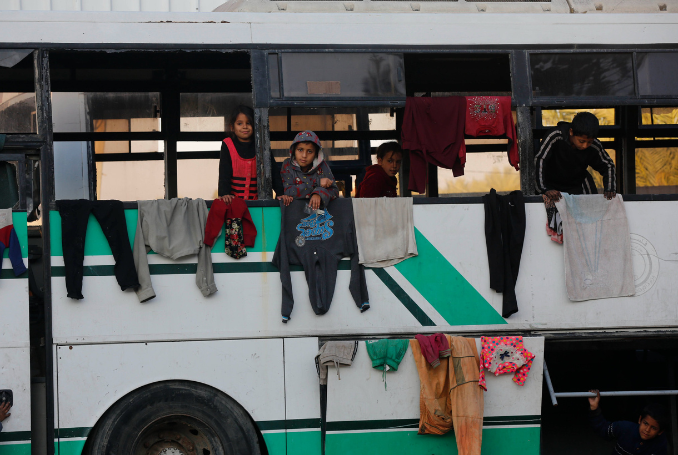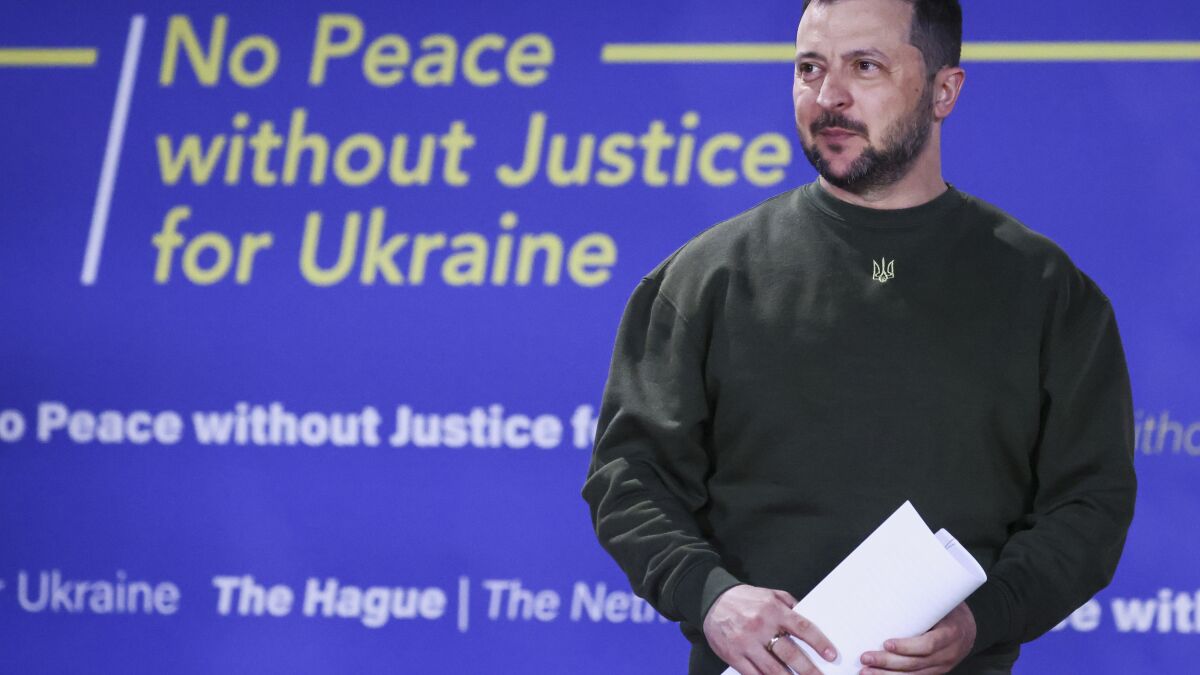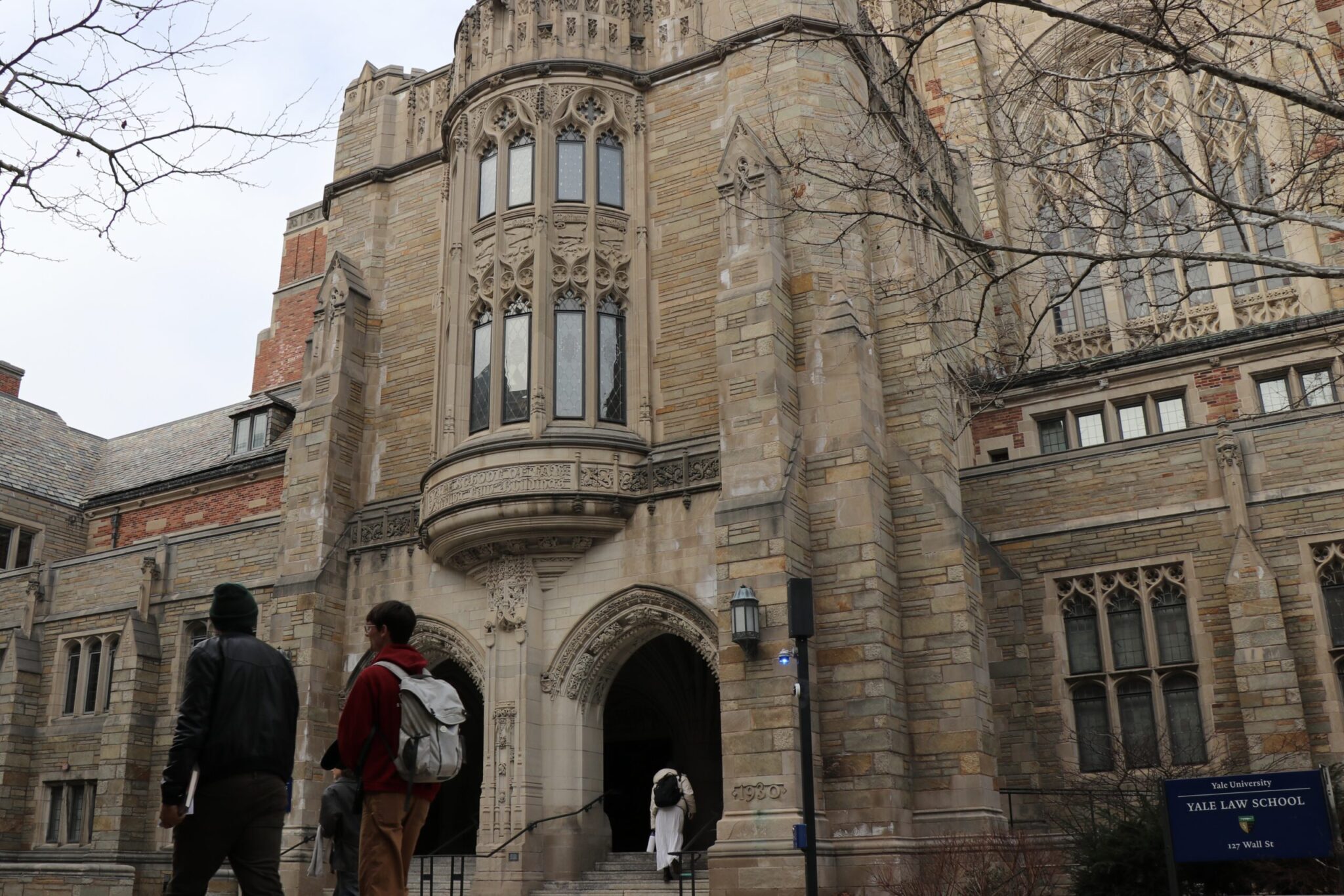
Christina Lee, Photography Editor
Two years ago, Harold Hongju Koh, Sterling Professor of International Law and former dean of Yale Law School, represented Ukraine before the International Court of Justice, or ICJ, at The Hague alongside a team of international lawyers. Just weeks ago, the ICJ released its most recent ruling on the Russia-Ukraine war.
In 2022, the ICJ, the United Nations international court tasked with resolving legal disputes between nations, heard several cases on the legal legitimacy of Russia’s invasion of Ukraine. The cases urged the ICJ to adjudicate claims of Russia being labeled a “terrorist state” and accusations of Russia violating the 1948 Genocide Convention, in which 32 countries sided with Ukraine’s genocide accusations against Russia, the largest number of countries to join another nation’s complaint at the ICJ.
Since then, the ICJ has announced major decisions on the war, the most recent of which was released on Feb. 2.
On Feb. 24, 2022, Russia launched a full-scale invasion of Ukraine, further intensifying the ongoing war, which began in 2014 with Russia’s occupation of Crimea and parts of Donbas. Russia, through its 2022 invasion, has killed over 10,500 Ukrainian civilians and injured over 18,500 Ukrainian civilians. Despite calls for peace talks from the United Nations Security Council, the war in Ukraine persists and continues to cause a stream of casualties and the displacement of countless civilians in Ukraine.
“Russia is much more powerful, has many more troops and much more economic power than Ukraine and what’s been really going on is a battle between the rule of law and a commitment to democracy against the hard power of autocracy,” Koh told the News. “And what these are suggesting is that international law and the world are on Ukraine’s side.”
Koh told the News that the ICJ has rendered several “important” decisions since Russia invaded Ukraine in 2022. The first decision, he said, was issued in March 2022, just a month following the invasion, and declared that Russian troops and paramilitary forces should not occupy Ukrainian territory.
Koh emphasized that this decision “sent a message” illustrating the illegality of Russia’s actions.
On Jan. 31, the ICJ dismissed much of Ukraine’s terrorism accusations against Russia. Ukraine had alleged that Moscow, the capital of Russia, was a “terrorist state,” as they claimed its support for pro-Russian separatists in Eastern Ukraine ultimately led to the 2022 invasion. Among the allegations, Ukraine had also argued that Russia supplied the missile system that shot down the aircraft Malaysia Airlines Flight 17 over eastern Ukraine in 2014, however the ICJ ruled that violations of funding terrorism only apply to monetary and financial support, not supplying weapons or training.
Two days later, on Feb. 2, the ICJ delivered a verdict on the “genocide” allegations in the war. While the ICJ clarified that it lacked jurisdiction to determine whether Russia violated the 1948 Genocide Convention through its invasion of Ukraine, Koh noted that this ruling allowed for the case to proceed regarding whether Russia falsely accused Ukraine of genocide and whether it continued to violate the provisional measures order with Russian troops in Ukraine.
“I think this is really a battle between the past and the future,” Koh told the News. “Russia lost its empire and is trying to return Ukraine to its empire and Ukraine is looking to the future and wants to be an independent democracy more closely associated with Europe.”
When asked about his next course of action, Koh said that he is looking to provide additional leverage for Ukraine in the situation.
Koh spoke about the importance of showcasing Ukraine as a representation of democratic values, the rule of law and a universal commitment to human rights while contrasting Russia as isolated and aggressive.
“In this world, the right values win but that calls on people committed to those values to step up and to understand when those issues are at stake,” he said.
Charles Brower, a law professor at Wayne State University School of Law, told the News that legal observers have described the ICJ’s rulings as disappointing for Ukraine’s efforts to leverage the international judicial process in ways that could increase pressure on Russia.
He said that the judgments themselves were unlikely to significantly impact the ongoing war between the two nations.
“Even if Ukraine had succeeded on all its arguments, no one expected Russia to comply with any judgments rendered against it,” he explained.
Olena Lennon, national security professor and expert on Ukraine at the University of New Haven, echoed this sentiment saying that she thinks the ICJ’s decisions will not have any effect on the war, given that Russia previously ignored legal orders from the ICJ in March 2022 to suspend all military activities on the territory of Ukraine.
Brower said that the international legal system allows this, given that it operates in a context where the establishment and maintenance of a minimum degree of order has to be the overriding priority and is often under threat. Members of the ICJ are elected by the Security Council and the General Assembly, and the ICJ itself lacks coercive powers to enforce their decisions, Brower explained.
“Given that context, it should come as no surprise that the court’s jurisprudence skews towards the maintenance of order and, therefore, may not prioritize achievement of justice in the broader sense,” Brower said.
However, Lennon said Ukraine has not needed official court rulings to convince the world that Russia’s violations of international law are a threat not only to Ukraine’s survival but to regional and global security writ large.
Referencing countries that have officially condemned Russia’s aggression, imposed sanctions on Russia and provided aid to Ukraine, Lennon said that court rulings are not necessary to publicly condemn Russia.
“Serving justice to the Russian perpetrators properly is still critical both to deter similar crimes in the future and to provide healing to the victims,” Lennon said. “However, at this stage, what matters more is other countries’ concrete collaborative actions to defend Ukraine and preserve Western institutions by any means possible, no matter how that support is codified.”
Koh has taught at Yale Law School since 1985.


